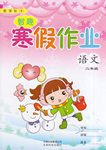题目内容
a cry for help. Here's the story of these five heroes as Gary Lewis, the man they helped, tells it.
"I like to work on my old car. It's my hobby. I wanted to put a new transmission (传动装置) in the car.
I put the car up on blocks (大块木头) because I wanted to get under it. I was trying to get the old transmission
out when suddenly the car moved forward and fell off the blocks. It came down on my chest. I couldn't
breathe."
"I tried to shout for help for about five minutes, but I almost could not breathe. Could anyone hear me?
Was I going to die? Then all of a sudden I heard some little children from the neighbourhood. They were
running to the car and saying,'What happened, sir?'"
"'Get help, please. I can't breathe,' I told them. One of the children ran to his house and told his mom to
call 911. Then, before I knew what was happening, all of the children were around the car. They used every
muscle (肌肉) in their bodies to lift (抬起) the car, and I was able to get out from under it."
Lewis got out from under the car with just a few cuts. He didn't even have to go to the hospital. "These
children are my heroes," he says. "I don't know how they did it, but I am lucky to be alive."
Raymond Brown, father of two of the children, is very proud of them. "We try to teach them to do the
right thing. This shows we're doing it the right way, I guess," he says.
B. it moved forward by itself
C. Gary Lewis moved the blocks
D. it was driven by someone.
B. he was running very fast
C. he had a bad cold
D. he was working too hard
B. Raymond Brown came and pulled him out
C. he pushed the car forward
D. the police came to his help

 智趣寒假作业云南科技出版社系列答案
智趣寒假作业云南科技出版社系列答案阅读理解
We spent a few days in Paris last week. We visit the famous city quite regularly. After all, it only takes three hours from London to Pairs. It’s always a pleasure visiting places we really like, exploring areas we’ve never been.
The only unlucky thing this time was the weather. As soon as we got there the temperature reached almost 35 degrees C (which lasted until we left). It was so hot that Matthew just couldn’t stand it — for him, it wasn’t the most enjoyable trip. I felt sorry for him because every time we go there he has to put up with (忍受) my endless shopping spree (狂欢) …
Because of the heat, we ended up just having lots of ice-cream and drinks most of the time, although we managed to pay a few visits to the new Herme shop on rue de Vaugirard at least. It’s not as busy as the shop on rue Bonaparte so you can choose whatever you like without worrying about a queue behind you! I really enjoyed his bread this time as well as the cakes. And I must say that his Croissant aux Amandes and Bostock were simply the best I’ve ever had.
1.Which of the following is TRUE according to the first paragraph?
|
A.It was the first time for the writer to go to Paris. |
|
B.It was a long way from London to Paris. |
|
C.The writer lives in London. |
|
D.The writer only likes to go to places she has never been to. |
2. The underlined word “stand” in the second paragraph means ____.
|
A.享受 |
B.忍受 |
C.站立 |
D.位于 |
3. What can you know about Matthew from the second paragraph?
|
A.He doesn’t like shopping. |
B.He doesn’t like travelling. |
|
C.He is one of the writer’s relatives. |
D.He isn’t a good husband. |
4. The shops on rue Bonaparte ____.
|
A.has no bread that the writer likes |
B.is often crowded with customers |
|
C.don’t have anything the writer likes |
D.is not very busy all the time |
5.What’s the best title for the passage?
|
A.An unpleasant trip |
B.A great city |
|
C.A shopping centre |
D.A trip to Paris |